Even if you’ve never purchased Dollar Shave Club’s products, you know the brand. From the moment the startup launched back in 2011, it set itself apart from competitors as a new kind of men’s shaving company—one with an innovative approach, respect for an essential product that we often overlook, and, of course, a wicked sense of humor.
Since launch, though, DSC (as those in the know call it) has expanded from its humble roots as a razor and shave cream company. These days, it's a full-fledged grooming empire intent on selling products to both men and women. So going back to that "even if you've never bought the products" part—if you haven't before, you'll want to now.
And right in the middle of this expansion, you’ll find Kadie-Ann Bowen, DSC’s V.P. of Program Management, helping ensure the company has the resources and process it needs to create the quality products you're going to want.
You might say Kadie-Ann’s career centers on one core belief. She's quick to explain that "great ideas die quickly without the right plan in place."
That’s why her daily routine revolves around helping her team take great ideas and turn them into truly innovative products. Basically, she's the person you can thank for taking a sketch on a whiteboard and ensuring it winds up packaged and in your medicine cabinet.
Read on to find out how Kadie-Ann went from an early marketing internship at the renowned Ogilvy & Mather to one of the most exciting startups around where she runs a lean and mean team of...three. (And believe us, she's got some great reasons for that.)
Her Starting Point
You studied marketing in college and landed an internship at Ogilvy & Mather. What drew you to marketing and advertising originally, and what did you learn in that industry that you still apply today?
I’ve always been fascinated by marketing and its ability to influence our buying behaviors and perceptions. While other young people were watching commercials for the entertainment, I was dissecting them to figure out the strategy (e.g. why certain types of actors were cast, the psychology behind colors, etc.).
The internship with Ogilvy & Mather was very attractive [to me] because of their reputation and eclectic client roster. During my time there, I learned the ins and outs of the creative process but, most importantly, found my niche in production and operations. Great ideas die quickly without a solid plan in place.
Pretty quickly after graduation, you shifted into project management roles, and you’ve been working in project management and/or production management since then. “Project management” is a relatively broad term—what sets you and the work that you do apart in your field?
What sets me apart in my profession is my keen focus on and interest in “the business.” I want to create an environment that not only drives delivering initiatives on time and on budget, but also produces great work that moves the needle. The traditional scope of “project management” is to guide the execution. As my career has evolved into managing overall programs versus individual projects, I've challenged myself to look at the bigger picture and contribute to strategic discussions.
A few years after graduation, you got an Advertising Certificate from UCLA. What motivated you to continue your education while working? Any advice for people considering expanding their skill set after hours?
I’ve always been passionate about education (self-driven and institutional). To stay relevant, I actively seek out development opportunities such as classes, training, and books. My time at UCLA was part of my master plan to move back into the advertising agency world. I still pull from those core principles today when interacting with various departments.
My advice for someone looking to continuing their education would be to document your goals before signing up for those extra hours. You will need a source of motivation when your studies and work life collide and start competing for your attention.
What made you decide to move from the agency world (Saatchi & Saatchi) to an in-house role at Dollar Shave Club? And what drew you to the company and the position initially?
I decided to move from the agency world because I wanted to take my career to the next level. The startup environment allows you to spread your wings and get involved in various aspects of the business.
A colleague actually introduced me to DSC. We worked together at Saatchi & Saatchi and, when he made the move to DSC, he encouraged me to look into the program management position. The ability to build a department from the ground up was very appealing to my brewing entrepreneurial spirit.
I like that at a startup, you don't have an outside client. Yes, we have approvers and people who own specific projects, but there isn’t a client you’re trying to please. At an agency, you deliver your work to a client and things inevitably get tweaked or watered down from the original idea/concept. At a startup, we are all invested in producing great work. When an idea/concept wins, we all win.
The move to DSC was one of the biggest gambles in my career thus far. I’ve found it very rewarding.

Her Big Break
What’s it like as a woman working for a men’s product brand? How do you feel you bring a unique perspective to the work?
DSC employs more women than you’d think. As we transition into a grooming company [rather than solely a men’s shaving line], women bring a unique perspective because we live and breathe in that space.
What does a typical work day look like for you? Do you have a morning routine? And how do you end your day? Do you have a favorite part?
I actually do have a morning routine! I usually get up fairly early, and I do a once-over of emails and things I need to react to quickly (because sometimes I’m working with people who are on different schedules). And then I do my Hit List. In my phone, I write down the top five things that I want to walk away from that day with finished. I get ready, and then depending on when my first meeting is, I may take it from home—because sometimes it's not worth sitting in traffic—or I go right into work.
There's nothing typical about my day once I'm in the office. I balance my time between meetings, roadmap planning, and supporting the project managers. Right now, I manage a team of three, including myself. It’s small on purpose because I want us to be super lean and mean. To be effective, we must manage up, down, and across.
The end of my day is all mental because I know that I hit this wall when it’s like, "OK, I know I’m not being as efficient as I want to be.” Sometimes that’s 5:30, sometimes it’s 8:30, but once I hit that wall, it's time to wrap up.
I usually end my day in the same way I started it. I go through my things that I wanted to get done. Then, I look at my calendar for the next day and, because it’s often so hectic, I block out time to actually do my work. I look at meetings to see if I’m prepared with agendas or if I've missed anything I should think about before I go.
I do keep myself available [after hours] because I would rather know early on that there's an issue so I can walk in prepared rather than people waiting until the next day to tell me. But I do a decent job with turning off. I've gotten better with that as I've gotten older.
The best part of any day is seeing an idea come to fruition. I spend most of my days thinking about the next big thing, so it brings me joy to celebrate our wins in real time.
You’ve been at Dollar Shave Club for almost two years, which is a relatively long time in a rapidly evolving company or startup. How has the company evolved since you started? How have you evolved with it?
There hasn’t been any massive evolution, but I do see a slight shift in our focus. I think that when I first started, we were strongly a startup, and we were churning out new features and getting our feet wet. We were setting our foundation. Now that we are a fairly established startup, we’re focusing on efficiency and seeing the best way to go about doing things. It’s more about, “Are we being as productive as we could be? Are we looking at other ways of doing things? Are we stepping outside of our box?”
[On a personal level,] this unique startup culture demands that you leverage your past experience but remain agile and open in your approach. DSC offers competitive career development and a playground for all my opinions, so in the past year, I’ve learned the art of negotiation, the principles of product development, and flexibility.

Her Perspective
For a woman interested in building a career in marketing, what’s your single best piece of advice? Or alternately, what piece of advice would you give to your younger self?
The best piece of advice that I can offer a woman interested in a career in marketing is “perception isn’t everything but it definitely counts.” As a woman in marketing, you must learn your communication style and voice quickly and continuously adapt based on your audience to showcase your skills, passion, and character. I would tell my younger self that adversity always comes with an opportunity.
Since you've regularly worked with teams as a manager and with clients, how has your leadership style evolved over the years? What are some of the biggest challenges you face as a manager of projects and people, and how do you face them?
Throughout the years, my leadership skills have definitely evolved. Early on in my career, I was more focused on leading the team through the execution of a plan. In recent years I also focus on developing soft skills to build relationships across disciplines. I believe breaking down communication barriers is a foundation of good leadership.
Actually, I would say that creating super clean communication lines is the biggest challenge for our team (or any team). Things move so quickly at a startup and, obviously, I’m not doing everything myself. So [leading] involves creating routines and check-ins and relationships to make sure information flows smoothly as you’re moving really, really fast.
Oddly, there are a lot of personnel-related responsibilities that go with my job. My end goal, my accountability piece is to make sure we’re delivering on time and we’re delivering the best product. But in doing that, I’m also dealing with different personalities [and] addressing personnel issues. That might surprise people given my title, but I work with our HR team often to optimize the DSC team and make the most of our people and our resources.
Have you ever made a mistake when working with a client? What are some of the rules you've made to help you work successfully with clients in general?
Definitely. My most memorable mistake with clients involved not going with a “gut feeling.” After bumping my toes several times, I now always find a venue to express my concerns, so I can champion success.
And finally, what do you wake up looking forward to? What’s next for your career?
I’m a self-proclaimed nerd. I wake up in the morning looking forward to learning something new and adding it to my bag of tricks. Just this week I researched regulatory requirements for various consumer good products to prep for a product development project. As for the next step in my career, I want to continue to learn and add to new skills to my toolbox so opportunity will continue to manifest.
You May Also Like
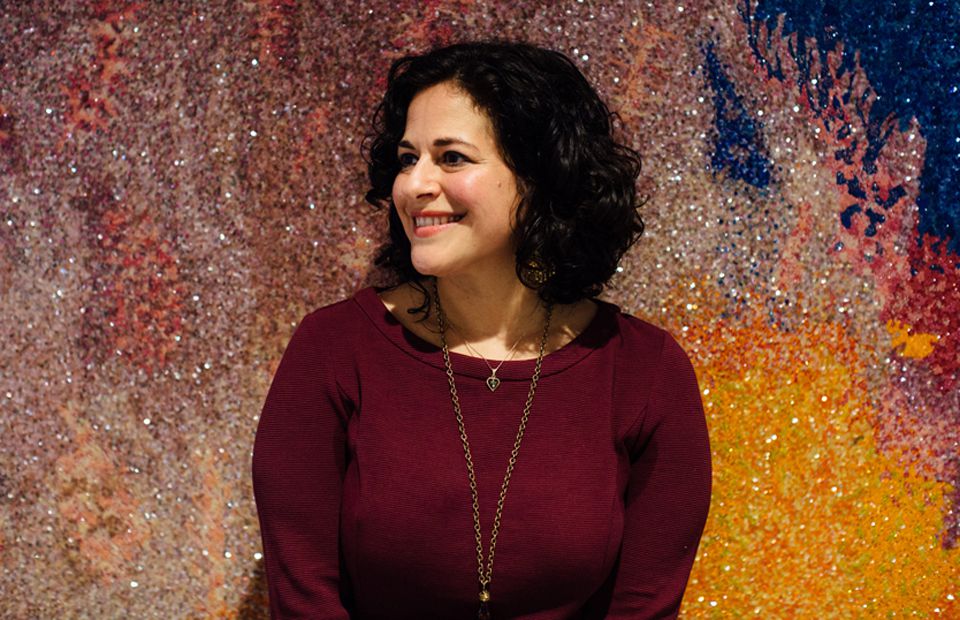
Consumer Goods
Our New Dream Job? Vice President of Social Consciousness & Innovation
"The truth is, having a more responsible supply chain or more responsible business is made up of lots of small actions. And one thing that I really love about my work is that nothing is black and white. It's all gray space."
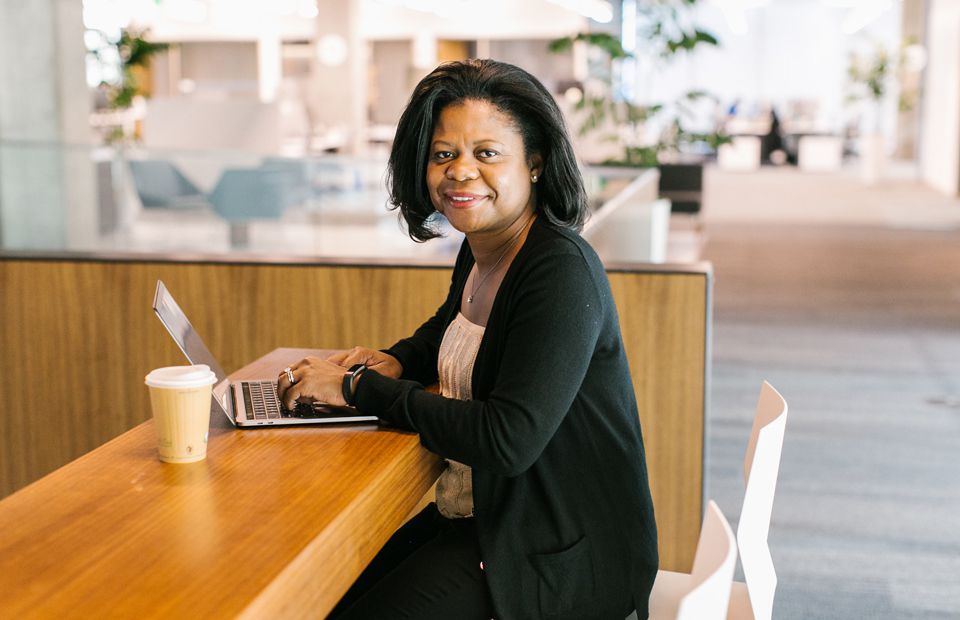
Consumer Services
An Executive at Intuit on How to 'Send the Elevator Back Down'
"What I often tell engineers—especially women engineers—is that it’s good to be excellent, but you’ve got to make sure it’s not a well-guarded secret."
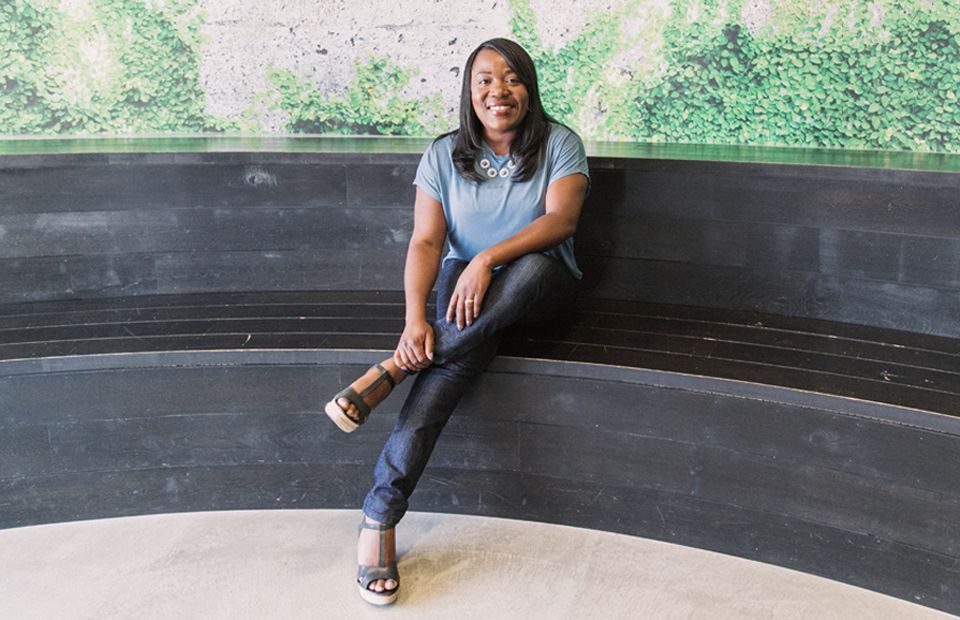
Consumer Services, Technology
A Top Lawyer Talks Leadership, Transparency, and a Music Empire's Goals for Diversity
As Chief Counsel at Pandora, Adelmise Warner has a few thoughts on leaning in.

Consumer Goods
Rising Tide Society's Founder on Why Not Everyone's Cut Out for Entrepreneurship
Natalie Franke on creative entrepreneurship and her journey with Rising Tide Society
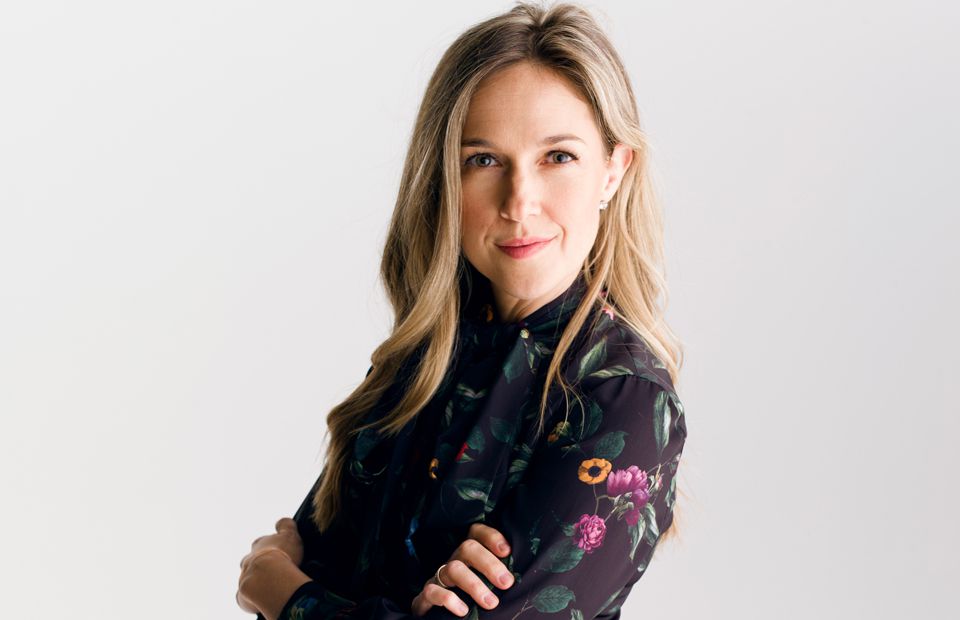
Consumer Services, Technology
Here's How a Female V.P. at a Tech Startup Faces the Gender Gap
Nikki Pechet on writing your own maternity leave policy and taking a job for joy, not money.
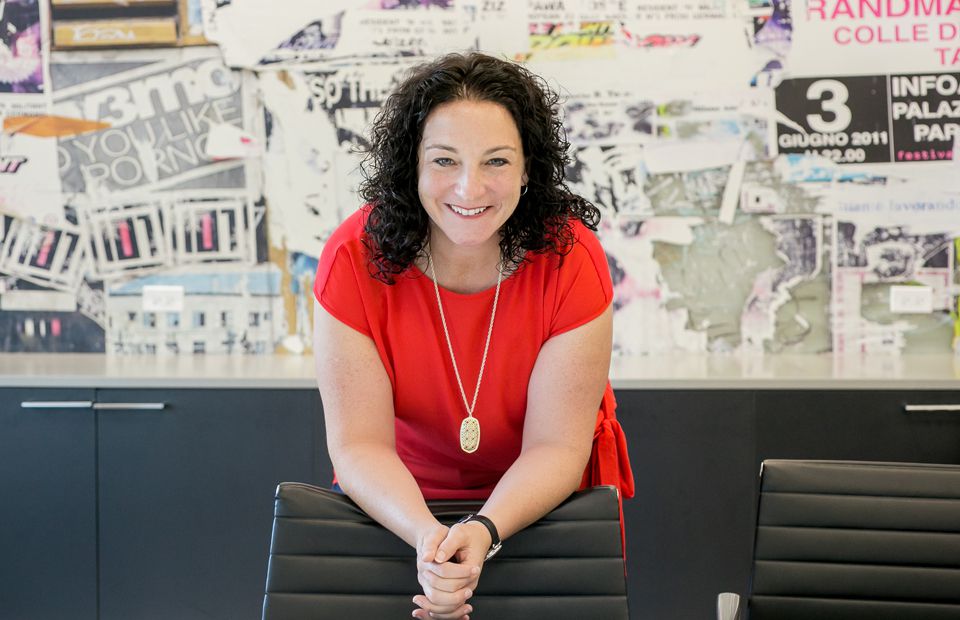
Consumer Goods, Technology
A Sales V.P. on What It's Like to Work at Pandora
Casey Forbes is living an audiophile's dream career.
Get the Best Career Advice Delivered To Your Inbox
Join our newsletter to stay in the loop.
